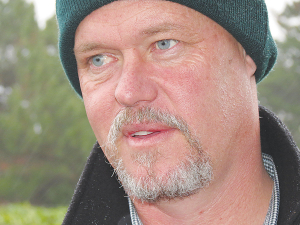Idea of killing cows to curtail methane emissions 'crazy'
Visiting US climate change expert Dr Will Happer says the idea of reducing cow numbers to greatly reduce methane emissions is crazy.
 Jim Gibbs says New Zealand’s ruminant industries do not have a methane mitigation miracle coming anytime soon.
Jim Gibbs says New Zealand’s ruminant industries do not have a methane mitigation miracle coming anytime soon.
OPINION: In the past several months, three separate articles have appeared purporting to explain the current situation in New Zealand cattle and sheep industries, regarding methane emission research.
First, Harry Clark, the adviser to government on greenhouse gas (GHG) emissions, then Mark Aspin, chair of the GHG research consortia, and John Roche, MPI’s chief scientific adviser; for brevity, I’ll summarise, because all three were effectively identical:
We have not produced a single enteric methane or GHG mitigation tool for New Zealand ruminant industries. Not one.
But we have torched $200 million taxpayer and levy dollars and worked very hard to get to this point. Jetting off to all those international conferences to boast what New Zealand was spending is exhausting, but we did it for you.
Trust us, there will be a methane mitigation tool coming soon… not sure what or when, but we are sure something will turn up soon. Soon.
These articles are meant to soften up farmers for the next act. Here’s what none of them said, but the cattle and sheep farmers of New Zealand deserved to hear about methane mitigation in 2022:
About the first written line in every document published internationally on climate change policy recommendations is this: FOOD PRODUCTION SHOULD NOT BE REDUCED.
This Government has promised various international non-government bodies that New Zealand will dramatically reduce enteric methane and (urine-associated) nitrous oxide emissions.
Without an effective enteric methane mitigation tool, the only means the Government – and the various collaborators above – have to reduce emissions from livestock is to slaughter them.
The maths is simple. For example, a 25% reduction across all cattle and sheep sector industries in enteric methane emissions is achieved by slaughtering 25% of the herd and flock.
When this happens, New Zealand will be again be seen an international agriculture leader, but for all the wrong reasons. Our country will reduce food production via slaughtering herds and flocks. We will be unique among OECD nations, proud New Zealand will meet this Government’s arbitrary promises on GHG by being the first economy to significantly reduce our protein-food production and exports to an increasingly hungry world, in the name of GHG.
In addition, even after that slaughter, New Zealand food producers – called dairy, beef and lamb farmers – will also be taxed on what food they do produce and export to the world. This tax on food production will not remedy one mouthful of methane produced. It serves only to force New Zealand food producers to reduce production, so as to reduce methane.
How this tax will work, and how much, has almost certainly been decided already via focus groups and private polling. However, to keep the restless peasant hordes outside of Auckland and Wellington inside their farm fences, we’ve had a grand, big consultation process – through He Waka Eke Noa – while the tame levy bodies drip feed out the bad news.
In the next article, I will dispel the false hope of a coming mitigation tool for New Zealand, which is the stock-in-trade of the puff articles above.
I will anchor a few ruminant methane facts that help us understand why we have no mitigation tools available – and why none are coming for the pastures of New Zealand anytime soon.
Jim Gibbs is a Lincoln University animal health scientist and vet.
The National Wild Goat Hunting Competition has removed 33,418 wild goats over the past three years.
New Zealand needs a new healthcare model to address rising rates of obesity in rural communities, with the current system leaving many patients unable to access effective treatment or long-term support, warn GPs.
Southland farmers are being urged to put safety first, following a spike in tip offs about risky handling of wind-damaged trees
Third-generation Ashburton dairy farmers TJ and Mark Stewart are no strangers to adapting and evolving.
When American retail giant Cosco came to audit Open Country Dairy’s new butter plant at the Waharoa site and give the green light to supply their American stores, they allowed themselves a week for the exercise.
Fonterra chair Peter McBride says the divestment of Mainland Group is their last significant asset sale and signals the end of structural changes.

OPINION: Your old mate welcomes the proposed changes to local government but notes it drew responses that ranged from the reasonable…
OPINION: A press release from the oxygen thieves running the hot air symposium on climate change, known as COP30, grabbed your…